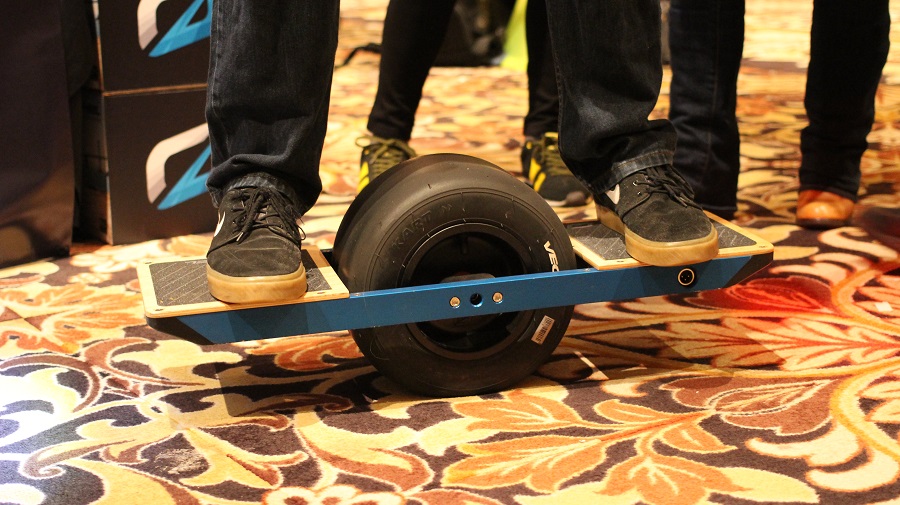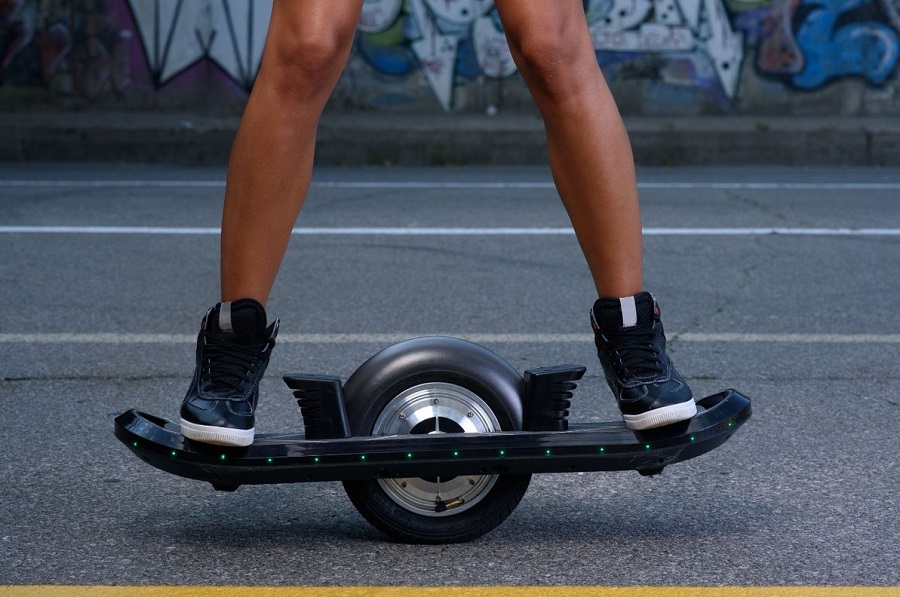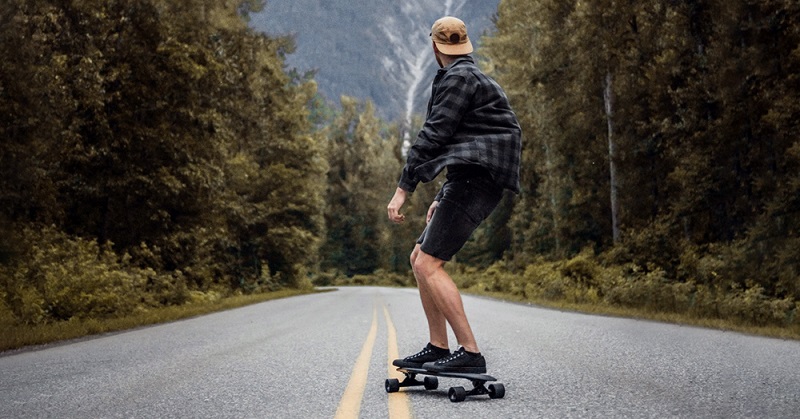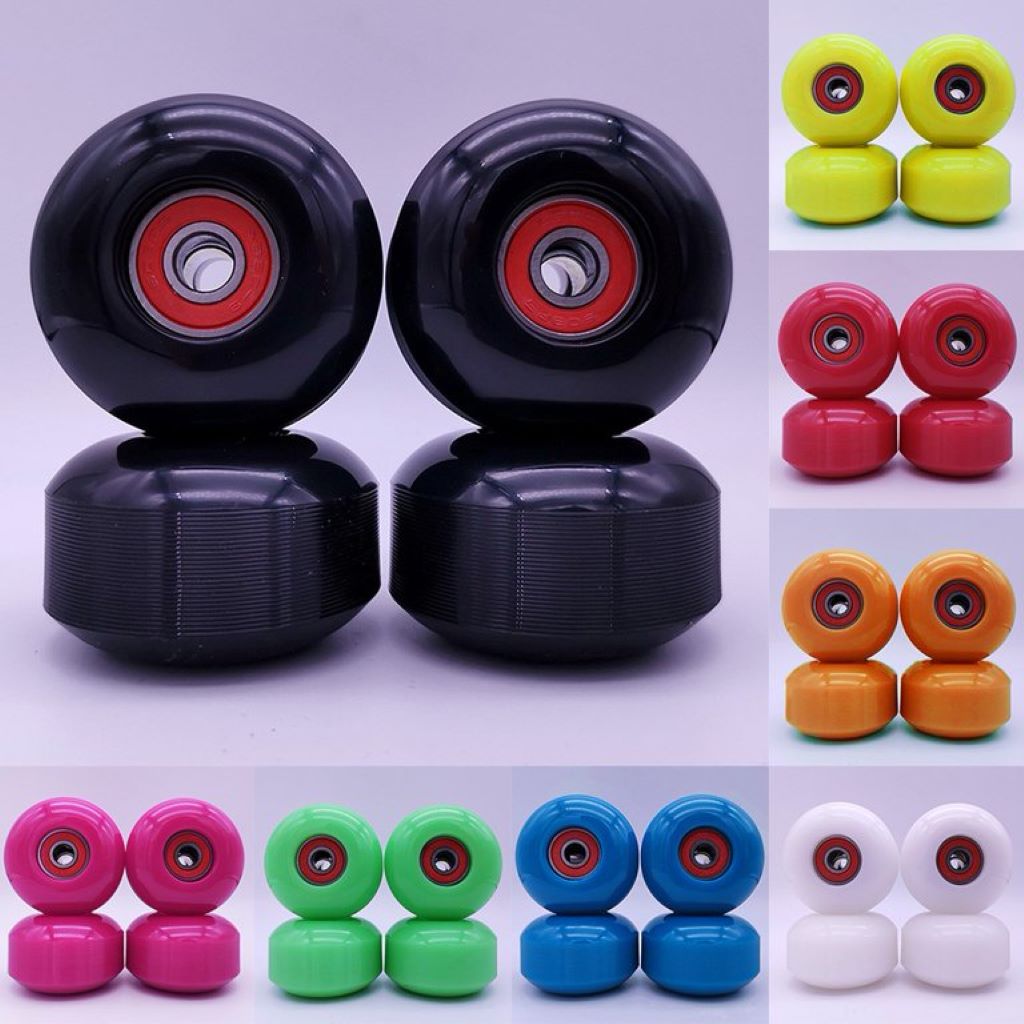Have you ever seen someone cruising on a one-wheel skateboard and wondered how they make it look so easy? Riding a one-wheel skateboard can seem intimidating at first, but with the right technique and practice, it can be a fun and thrilling way to get around. In this article, we will provide you with tips and tricks on how to ride a one-wheel skateboard like a pro.
Understanding the Basics
Before you start riding a one-wheel skateboard, it is essential to understand its parts and how they work together. The board consists of a single large wheel in the center, surrounded by a platform for the rider’s feet. The wheel is powered by an electric motor and controlled by a handheld remote. The rider’s balance and body position play a significant role in controlling the skateboard’s movement.

Finding Your Balance
The key to riding a one-wheel skateboard is maintaining your balance. Stand on the board with your feet shoulder-width apart and your weight centered over the wheel. Keep your knees slightly bent and your arms out to your sides to help you stabilize. Try to relax and avoid tensing up, as this can throw off your balance.
Starting and Stopping
To start moving, gently push the accelerator button on the remote while keeping your weight centered over the wheel. Start at a slow speed and gradually increase as you become more comfortable. To stop, release the accelerator and slowly lean back to slow down. You can also use the brake button on the remote to stop more quickly.
Turning
Turning on a one-wheel skateboard is all about shifting your weight. To turn left, shift your weight to your left foot, and lean slightly in that direction. To turn right, do the opposite. Start with gentle turns and increase your speed gradually as you get more comfortable.
Riding on Different Surfaces
One-wheel skateboards are versatile and can be ridden on various surfaces, including concrete, asphalt, and grass. Keep in mind that riding on rough or uneven terrain can be challenging, so start on smooth surfaces and gradually work your way up.
Safety Precautions
Like any other sport, riding a one-wheel skateboard comes with some risks. Always wear appropriate safety gear, including a helmet, wrist guards, and knee pads. Start at a slow speed and gradually increase as you become more confident. Avoid riding in traffic or areas with many obstacles.
Practice Makes Perfect
Riding a one-wheel skateboard takes practice, so don’t get discouraged if you don’t get the hang of it right away. Start in a safe, open area with no obstacles, and practice the basics, such as starting, stopping, and turning. Gradually increase your speed and try more advanced techniques once you feel comfortable.
Tricks and Techniques
Once you have mastered the basics of riding a one-wheel skateboard, you can try out some tricks and techniques to impress your friends. Some popular tricks include 180-degree spins, riding backward, and jumping over small obstacles. Remember always to stay safe and wear appropriate safety gear when attempting any tricks.
Conclusion
Riding a one-wheel skateboard can be a fun and exciting way to get around. With the right technique, practice, and safety precautions, you can ride like a pro in no time. Remember always to wear appropriate safety gear, start slow, and practice the basics before attempting any advanced techniques.




